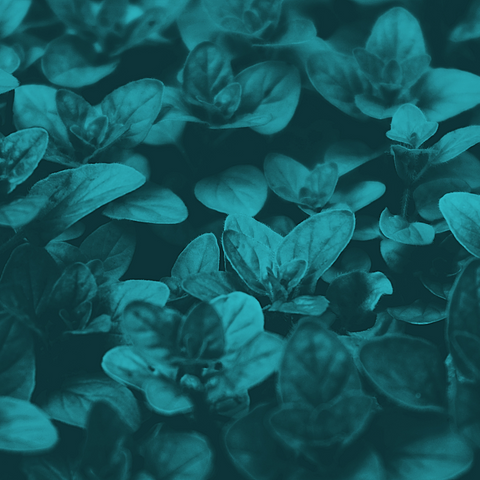In this article, we'll be delving into seven such potent herbs known for their ability to enhance our immune system — elderberry, echinacea, turmeric, green tea, ginger, astragalus, and reishi mushroom. These aren’t mere traditional remedies, but potent agents that protect us by enhancing our immune function on a cellular level. We'll offer a sneak peek into the science of how unique compounds present in plants, when included in our diet, add not just flavor but boost immunity as well, resulting in optimal immune health. Now, let's explore the diverse mechanisms like the antiviral and anti-inflammatory effects through which these humble herbs support the immune system.
1. Elderberry: Nature’s Antiviral Powerhouse
Elderberry (Sambucus nigra), the dark purple berry from the elder tree, fights influenza viruses. The flowers and berries get their immune-boosting power from strong biological compounds like polyphenols, antioxidants, and vitamins. These compounds help fight inflammation, combat stress, and are beneficial for heart health too.
Scientists have found that anthocyanin cyanidin-3-glucoside and cyanidin-3-sambubioside are the main polyphenols that help elderberries strengthen the immune system [1]. They are the same compounds that lend elderberries their distinct color.
The fruit's extracts stop viral hemagglutinin, a protein that lets viruses attach to host cells. This blocks the viral entry, thus making it less potent [2].
Not just that, elderberry makes the body produce more inflammatory cytokines – IL-1β TNF-α, and IL-6 [1]. While too much inflammation is detrimental, a controlled release of cytokines boosts the immune system and gets it ready to fight off germs better.
2. Echinacea: Immune System Modulator
Echinacea (Echinacea purpurea), the purple coneflower, is another herb revered for its immune-enhancing properties worldwide. While it is another popular remedy against cold and flu, it is also great at reducing inflammation and treating pain, migraines, and other health issues.
Echinacea derives its immunomodulatory effects from a complex decoction of active compounds like alkamides, polysaccharides, and caffeic acid derivatives [3].
Among the many mechanisms by which echinacea boosts our immunity is through the activation of macrophages. Polysaccharides from echinacea bind to macrophage surface receptors, enhancing phagocytic activity and production of pro-inflammatory cytokines [4]. This action, besides clearing out pathogens, paves the way for a broader immune response.
Echinacea also influences the adaptive immune system. Research shows that extracts from echinacea can enhance cell-mediated immunity by increasing the proliferation and function of T lymphocytes [5].
It is interesting to note that the immunomodulatory effects of echinacea are bidirectional. While echinacea boosts immune response when required, it also has anti-inflammatory properties to help regulate a heightened immune response [6]. This multifaceted property of echinacea makes it an excellent herb for supporting overall health and immunity.
3. Turmeric: The Golden Anti-Inflammatory
Turmeric (Curcuma longa) is the uncontested hero of traditional medicine. Its primary bioactive compound, curcumin, has found unmatched attention for its anti-inflammatory and immunomodulatory properties. From treating the common cold to arthritis, allergy, asthma, atherosclerosis, heart disease, Alzheimer's disease, diabetes, and cancer, research has shown just how powerful this modest spice is.
These abilities are, in part, due to curcumin’s ability to modulate the immune system
The anti-inflammatory effects of curcumin are largely facilitated through the inhibition of nuclear factor-κB (NF-κB), a key transcription factor responsible for inflammation [7]. The suppression of NF-κB activation by curcumin results in the production of an army of pro-inflammatory cytokines like TNF-α, IL-1β, and IL-6.
Curcumin is an excellent immunomodulator. On one hand, it enhances the phagocytic activity of macrophages [8]. On the other hand, it exhibits complex effects on T cell regulation.
While it can inhibit the suppressive capacity of naturally occurring CD4+CD25+ regulatory T cells (Tregs) by downregulating CTLA-4 and Foxp3 expression [9], curcumin also promotes the differentiation of induced Tregs. It modulates dendritic cells to express ALDH1a and IL-10, which in turn induce both Foxp3+ Tregs and IL-10-producing Tr1 cells through TGF-β and retinoic acid-dependent mechanisms [10].
Curcumin suppresses initial CD4+ T cell activation but enhances late-phase CD69 expression and TGF-β1-mediated generation of regulatory T cells [11].
These seemingly contradictory effects suggest that curcumin's impact on Tregs may be context-dependent, potentially offering therapeutic applications in various conditions, including cancer and inflammatory bowel disease [12].
Furthermore, curcumin is a potent antioxidant. It scavenges free radicals and enhances the activity of antioxidant enzymes, thereby protecting immune cells from oxidative stress, and ensuring their optimal function [13]. These properties make turmeric a holistic ingredient in our diet to enhance overall immunity.
4. Green Tea: Catechins for an Immune Defense Boost
Green tea, a beverage that is increasingly gaining popularity among the health-conscious populace, is derived from Camellia sinensis leaves. It is rich in immune-boosting polyphenolic compounds, also known as catechins, with epigallocatechin-3-gallate (EGCG) being the most abundant and active compound.
Green tea is known to enhance immune function primarily through its potent antioxidant activity. EGCG and other catechins neutralize free radicals, protecting immune cells and maintaining their functionality [14]. This effect is central to preserving immune cell membranes, thereby retaining and ensuring proper cell signaling and function.
Interestingly, green tea catechins also possess direct antimicrobial properties. Research suggests that EGCG can disrupt bacterial cell membranes and inhibit viral replication [15]. In the case of influenza viruses, EGCG binds to the hemagglutinin spike, preventing viral particles from attaching to host cells [16].
Green tea catechins also influence diverse aspects of both innate and adaptive immunity, thereby serving an immunomodulatory role. Studies show that they enhance the production of γδ T cells, a subset of T cells that play an active role in mucosal immunity. Further, green tea polyphenols also modulate cytokine production, thereby promoting a balanced and healthy immune response [17].
5. Ginger: Spicing up Immune Function
Ginger (Zingiber officinale) is another popular herb used in traditional medicine systems for its vast array of health benefits, since time immemorial. The bioactive compounds in ginger, namely gingerols and shogaols, contribute to its immunomodulatory effects.
Ginger at its cellular level, possesses potent anti-inflammatory properties. Studies show that gingerols, for instance, inhibit the production of pro-inflammatory cytokines by suppressing the activation of NF-κB and the expression of cyclooxygenase-2 (COX-2) [18]. This anti-inflammatory action helps maintain a balanced immune response and prevents excessive inflammation which is detrimental.
Ginger also boosts the function of various immune cells, including macrophages, neutrophils, dendritic cells, and T cells [19]. This dual action on both innate and adaptive immunity contributes to a more robust overall immune response.
Ginger’s role in enhancing immunity also extends to possessing antimicrobial properties. Certain compounds in ginger have been shown to inhibit the growth of various pathogenic fungi and bacteria [20]. The antimicrobial action of ginger goes hand in hand with its immunomodulatory effects, contributing to an effective approach to immune defense.
6. Astragalus: Traditional Immune-Boosting Tonic
Astragalus (Astragalus membranaceus) has been a staple in traditional Chinese medicine for centuries, prized for its ability to strengthen the body's natural defenses. Modern research has just begun to unravel the molecular mechanisms behind astragalus's immune-enhancing properties.
One of the key components of astragalus is a group of polysaccharides known as astragalans. These compounds have been shown to stimulate the production and activity of various immune cells. Studies have demonstrated that astragalus polysaccharides can enhance the proliferation and cytokine secretion of T lymphocytes, particularly helper T cells [21]. This effect on T cells contributes to a more robust adaptive immune response.
Astragalus also exerts significant effects on the innate immune system. It has been shown to enhance the phagocytic activity of macrophages [22] and increase the production of interferons, crucial cytokines in antiviral defense [23]. Moreover, astragalus has been found to stimulate natural killer (NK) cell activity, further bolstering the body's first line of defense against pathogens and abnormal cells [24].
On a molecular level, astragalus influences various signaling pathways involved in immune function. It has been shown to modulate the expression of Toll-like receptors (TLRs), key players in the innate immune response [25]. By enhancing TLR signaling, astragalus may improve the immune system's ability to recognize and respond to pathogens.
7. Reishi Mushroom: Fungal Immunomodulator
Reishi mushroom (Ganoderma lucidum) has been revered in Eastern medicine for its immune-enhancing properties. The complex polysaccharides and triterpenes found in reishi are responsible for their diverse effects on the immune system.
One of the primary mechanisms by which reishi boosts immune function is by activating innate immune cells. Beta-glucans, a type of polysaccharide abundant in reishi, bind to specific receptors on macrophages and dendritic cells, stimulating their activity [26]. This enhanced activation of innate immune cells not only improves immediate pathogen defense but also facilitates a more effective adaptive immune response.
Reishi also exerts significant effects on the adaptive immune system. Studies have shown that reishi extracts can promote the differentiation of naive T cells into helper T cells [27] and cytotoxic T cells [28]. This enhancement of T cell function contributes to a more robust cell-mediated immune response.
Furthermore, reishi has been found to modulate cytokine production. It can stimulate the production of pro-inflammatory cytokines when the immune system needs to be activated [29], but it also has anti-inflammatory properties that can help regulate an overactive immune response [30]. This two-way immunomodulation makes reishi a versatile supporter of immune balance.
On a molecular level, reishi influences various signaling pathways involved in immune function. It has been shown to activate NF-κB and mitogen-activated protein kinase (MAPK) pathways, which play crucial roles in immune cell activation and cytokine production [31].
Conclusion: Herbs Can Help Boost Your Immune System
The seven herbs analyzed in this article – elderberry, echinacea, turmeric, green tea, ginger, astragalus, and reishi mushroom, have unique immune-boosting attributes.







Comments (0)
There are no comments for this article. Be the first one to leave a message!